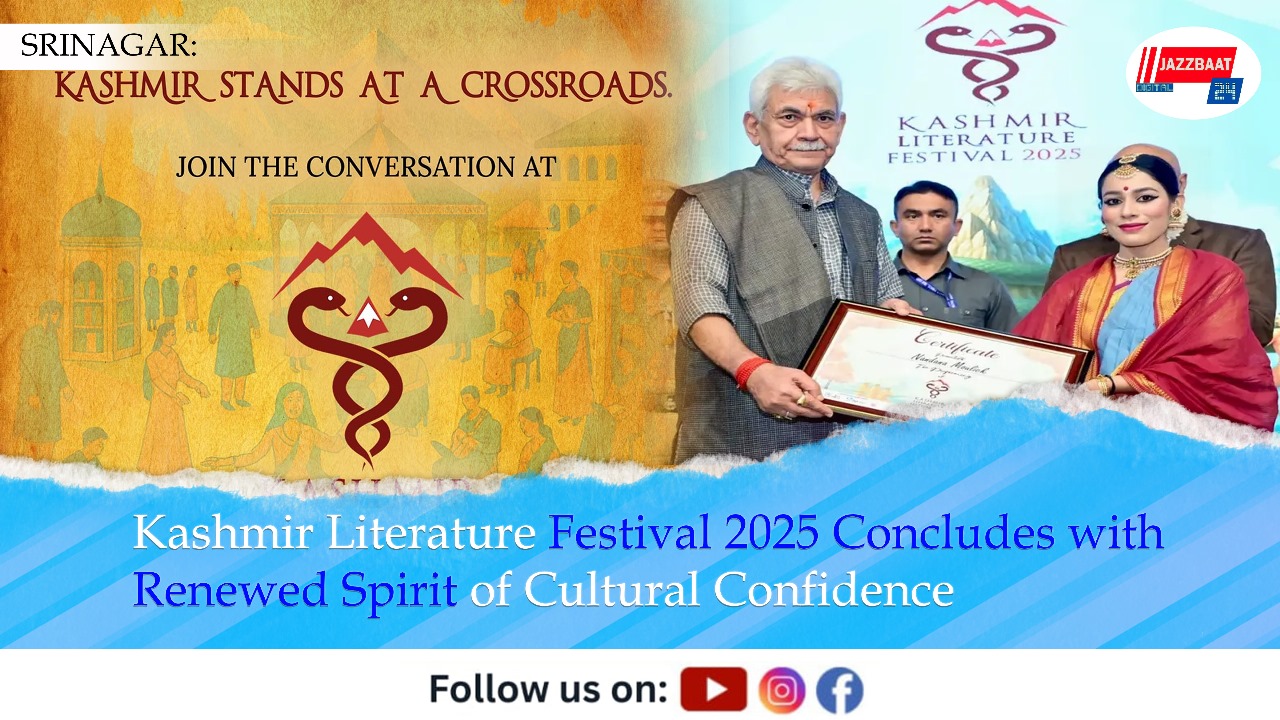SRINAGAR: The second edition of the Kashmir Literature Festival (KLF) concluded on Sunday at the Sher-i-Kashmir International Conference Centre (SKICC), leaving behind an atmosphere of optimism, reflection, and creative resurgence. The two-day event celebrated the essence of Kashmir’s literary and cultural vibrancy, bringing together an array of authors, poets, journalists, scholars, and artists from across India.
Organised by the Srikula Foundation, the festival sought to foster dialogue on Kashmir’s evolving socio-political realities while reviving the region’s long-standing intellectual traditions. Through a mix of panel discussions, book launches, art showcases, and cultural performances, KLF reaffirmed literature’s enduring role in shaping collective understanding and healing.
The festival’s sessions spanned topics from literature and art to history, geopolitics, and contemporary society. Among the prominent voices present were Kanchan Gupta, Vijay Dhar, Neerja Mattoo, Lt Gen (Retd) D. P. Pandey, Abhijeet Iyer Mitra, Col. Ajay Raina, Advocate Jehanzeb Allaqaband, Raja Muneeb, Rouble Nagi, Tehmeena Rizvi, and Aarti Tikoo. Each contributed unique insights on Kashmir’s evolving identity and the interplay between tradition and modernity.
Defence analyst and author Lt Col JS Sodhi (Retd), speaking on the sidelines, highlighted the region’s transformation in recent years. He remarked that following the abrogation of Article 370, Jammu and Kashmir had entered one of its most peaceful phases. “Before the abrogation of Article 370, stone-pelting was widespread. Now, not even one such incident has been reported. In fact, J&K has witnessed a remarkable boom in tourism since then,” he said.
Lt Col Sodhi also expressed optimism about the region’s developmental trajectory. “We have seen how Kashmiris are making their mark at national and international levels. The youth of J&K are focusing on progress and contributing to India’s growth story. I firmly believe that the Union Territory is on a steady path of growth and prosperity,” he added, assuring visitors that “Kashmir is safe and welcoming.”
The festival’s evenings came alive with performances by local artists, including Massrat-un-Nissa, whose soulful renditions merged Kashmiri heritage with contemporary expression. Parallel exhibitions featured works by young artists and writers, giving school students and emerging creators a platform to showcase their imagination.
Advocate Jehanzeb Allaqaband, a member of the organising committee, described KLF as “more than a gathering of writers and thinkers; it was a vibrant exchange of ideas across literature, art, and contemporary thought.”
As the curtains drew on this year’s edition, attendees reflected on how KLF has evolved into a symbol of cultural resilience and intellectual openness. By bridging traditional wisdom with modern narratives, the festival underscored the power of storytelling to unite communities and reassert Kashmir’s place as a centre of dialogue and creativity.
The Kashmir Literature Festival 2025 thus ended not only as a celebration of art and literature but as a testament to the Valley’s enduring spirit-one that continues to find light, meaning, and hope through the written word.
